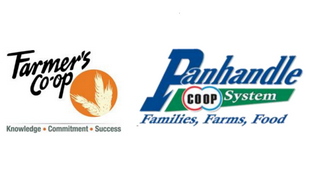![]()

The Boards of Directors of Farmers Coop and Panhandle Coop are in discussions to unify and have signed a letter of intent to explore the possibility of a merger on March 1st of next year.
They say a merger will offer patrons a broader range of services, increased access to markets, and the potential for improved bargaining power – all leading to mutual growth and strengthening the agricultural industry in the entire region
The Boards are currently working on a new name for the unified cooperative and a Plan for Merger with a target release to members of early next month.
Informational meetings will be held in mid-December for members of both co-ops, followed by each co-op holding a special membership meeting to vote on merging. A majority of members of both co-ops would need to approve a merger.
Panhandle Coop marketing director Susan Wiedeman says both cooperatives have served their communities and members for decades, providing patrons with essential resources, support, and a sense of community.
Wiedeman says they share similar values and with the changing demands of the market and economies of scale, both boards and their management teams recognize the potential benefits of unifying.
They’re excited about the possibility of a merger and see it as an opportunity to combine their expertise, resources, and strategies – although the differences of their primary service areas would require “creative solutions to serve all members effectively.”
The basic proposal is specialized divisions dedicated to agronomy, grain, livestock feed and management, energy, market analysis, and retail grocery to make the most of the unique strengths of both Farmer’s and Panhandle.
They say the approach will empower patrons to retain their insights and expertise, while also benefiting from the collective power of the larger, unified co-op.
They see a merger as also benefiting the region through investment in local infrastructure, educational programs, and social initiatives – all enriching the lives of both farmers and non-farming residents alike
